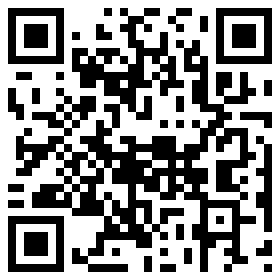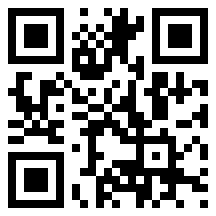How big is a MOOC? What is the importance of a cohort in a MOOC? Where is the center? What is its optimal time frame? Can participants dip in and dip out whenever they feel like it? in which case can they dip in and dip out over a number of years? or can they band together informally in a space that's not called a MOOC? Would that then still be called a MOOC?
Some of these questions are developing answers in the literature. For example, User:Mackiwg created a post in WikiEducator where (s)he asks "How big is a MOOC? Double the number from one week to another". As attrition in MOOCs is also an issue, the answer could just as easily be "halve the number from one week to the next." Still, for the question of what number constitutes a MOOC, most references point to McAuley, Stewart, Siemens and Cormier (2010) http://davecormier.com/edblog/wp-content/uploads/MOOC_Final.pdf, where for an open online course to be massive, it has to have hundreds or thousands of participants.
McAuley et al. are also relied on for the definition of a MOOC. For example http://wikieducator.org/OER_university/eduMOOC_planning_group/MOOC_comparison quotes this definition:
- "a MOOC integrates the connectivity of social networking, the facilitation of an acknowledged expert in a field of study, and a collection of freely accessible online resources.
- Perhaps most importantly, however, a MOOC builds on the active engagement of several hundred to several thousand “students” who self-organize their participation according to learning goals, prior knowledge and skills, and common interests.
- Although it may share in some of the conventions of an ordinary course, such as a predefined timeline and weekly topics for consideration, a MOOC generally carries no fees, no prerequisites other than Internet access and interest, no predefined expectations for participation, and no formal accreditation."
Size is one thing that MOOCs seem to have in common. As can be seen, it is often pointed out that this is a necessary characteristic, but I've been experimenting with what I call Miniscule Open Online Courses, which is where I think that the principles on which MOOCs are based apply to courses run on a much smaller scale e.g. http://goodbyegutenberg.pbworks.com. This fits at least the Wikipedia definition of MOOC, where size matters ("works significantly better if the course is large") but is not essential. Some of these characteristics are:
- extremely student centered,
- highly networked,
- course consists of rich content,
- facilitators provide coherent PLE,
- participants navigate curriculum according to their interest and individual choices
"We have approached this MOOC in a way similar to how we teach a graduate seminar.
- We respect the knowledge, diversity and innovative spirit of those who choose to participate in a MOOC.
- Our approach has been to create opportunities to learn;
- to mention thought-provoking ideas where we can;
- to invite some people who care about the topic to our panel discussions,
- and mostly to point people to interesting resources in the area of online learning.
- Our approach is not that we, the organizers, will teach in a traditional hands-on way, but that we will provide the opportunity to engage, interact, and learn.
- We set the original agenda, invited some panelists, created some spaces - though many more spaces were created by the participants - to give some form to the MOOC blob so people would have an idea what it might become."
What's missing?
Mary Rearick, a prolific contributor to EduMOOC 2011, observed in a Facebook post (in the MOOC group on July 15, 2011) in answer to someone trying to find their way in the MOOC, that "one can find oneself going in circles... Since distributed groups have formed and content is scattered everywhere... a person can waste a lot of time and there is really little opportunity to collaborate on anything significant." I replied that "Sometimes I feel I'm going in circles with Google+ but with EduMOOC I'm learning every day. I mentally leap to ePortfolios where individuals can specify their learning goals (significant to them) and document how they achieve them. In this context I wonder if we can consider time wasted if a learning goal is achieved. In a MOOC some of the goals are likely not achievable in other learning environments."
In recent renditions of my multiliteracies course, assessment has been by means of ePortfolios. ePortfolios are a logical accompaniment to MOOCs, and there is in fact an upcoming MOOC being arranged on
that topic, starting later this month: https://sites.google.com/site/eportfoliocommunity/epcop-mooc.
One good example of how connectivist learning takes place is Twitter, where people follow one another in an effort to expand their PLNs and maximize contact with postings leading them to learning even one thing over coffee in the morning. This one thing (and often it is many things) can be considered a significant learning increase over what was previously available. Similarly, Mary created another post in the vicinity of the one mentioned above (July 18) http://screencast.com/t/js2O41WX8h. When I saw it, I Scooped it http://bit.ly/r8l3Ou and then tweeted that http://twitter.com/VanceS/status/92852508422180864 thereby spreading the knowledge throughout my network. The article worthy of so much attention is a study of PLENK 2010, ellucidating patterns of learning to emerge from that recent MOOC: Kop, R. (2011). The Challenges to Connectivist Learning on Open Online Networks: Learning Experiences during a Massive Open Online Course. The International Review of Research in Open and Distance Learning 12, 3. Available: http://www.irrodl.org/index.php/irrodl/article/view/882/1689.
One good example of how connectivist learning takes place is Twitter, where people follow one another in an effort to expand their PLNs and maximize contact with postings leading them to learning even one thing over coffee in the morning. This one thing (and often it is many things) can be considered a significant learning increase over what was previously available. Similarly, Mary created another post in the vicinity of the one mentioned above (July 18) http://screencast.com/t/js2O41WX8h. When I saw it, I Scooped it http://bit.ly/r8l3Ou and then tweeted that http://twitter.com/VanceS/status/92852508422180864 thereby spreading the knowledge throughout my network. The article worthy of so much attention is a study of PLENK 2010, ellucidating patterns of learning to emerge from that recent MOOC: Kop, R. (2011). The Challenges to Connectivist Learning on Open Online Networks: Learning Experiences during a Massive Open Online Course. The International Review of Research in Open and Distance Learning 12, 3. Available: http://www.irrodl.org/index.php/irrodl/article/view/882/1689.
For example, the epcop_learnspace MOOC portal at https://sites.google.com/site/epcoplearnspace/home/mooc sports a quote by David Wiley who was asked, "Do I think MOOCs can be effective in supporting learning?" He is quoted here as answering, "Yes, absolutely. The MOOC is not terribly different from the learning I saw occurring in 'Online Self-Organizing Social Systems' a decade ago, which we published an article about in 2002. I thought the possibility for informal learning in these settings was intriguing then. Add the new 'Web 2.0 / social media revolution' that has happened since the article was published into the mix, and it’s downright exciting." (Incidentally the link on the epcop page is broken, but the article is available here: http://www.opencontent.org/docs/ososs.pdf
In our Learning2gether EduMOOCast July 10, 2011 http://learning2gether.posterous.com/vance-stevens-and-jeff-lebow-will-lead-a-disc Nellie Deutsch was hypothesizing on what has given this particular MOOC its legs. She attributes a lot of that to the relaxed degree of control that the moderators here have been exercising, but I would say also that the participants in their present mindset are also more in a position now to take their own control. There are many experienced MOOCers here, which could not have been possible with the first one just a couple of years ago, when the ground rules were only then being formulated. But that was when this phenomenon was first called a MOOC.
How long have we been MOOCing about like this?
Jeff Lebow blurred the line further by suggesting in one of his EduMOOCasts that perhaps EVO or Electronic Village Online could be considered a MOOC. EVO has never represented itself as a MOOC, but it is an ongoing event taking place each January-February since 2001. It's massive on a scale of hundreds to thousands, it's open, it's online, and it's a set of courses. It rolls over year after year at http://evosessions.pbworks.com, and it sustains itself year round as its coordinators line up mentors prior to the call for moderators, who then undergo training which is also organized year round, so they can conduct the sessions in January and February.
Jeff could just as easily have mentioned his own http://worldbridges.net network of webcasting educators. The network of committed and productive educators at http://edtechtalk.com/ continues to churn out podcast after podcast, almost every one including a word of thanks from godfathers Jeff Lebow and Dave Cormier for providing the server and the opportunity. Many of these podcasters matriculated through http://webcastacademy.net/, a MOOC by all the standards listed in McAuley, Stewart, Siemens and Cormier (2010); i.e. a coherent course with a syllabus and timeframe for training participants in the complex techniques required in webcasting. It's free and open, richly socially networked, and has hundreds of participants who organize themselves around helping to write and update content.
I'm starting to think that communities of practice such as http://webheads.info could conceivably be construed as a MOOC. This group is also massive on the scales discussed here (over 1000), it is open, online, and is a course insofar as its members are constantly learning from one another, overtly in the case of its weekly online events which have taken place every Sunday since 1998, and have most recently manifested themselves in the seminar series archived at http://learning2gether.posterous.com.
I just happened on a post I made in 2009 when I was following a SCoPE seminar (possibly yet another MOOC) and reflecting on my learning then: http://vancestevens.posterous.com/reflections-on-how-we-learn-through-networks. At the time, networked learning was catching on in a big way (this was just after the first MOOC in 2008, see http://en.wikipedia.org/wiki/Massive_open_online_course) and this post recalls what I was learning at the time and more importantly how I was doing it, and more important still, how I and others in my PLN had been learning from one another from almost the moment ubiquitious connectivity became possible with the advent of Web 2.0.
So, I'm starting to wonder, have we in fact been MOOCing all along?
Reference:
McAuley, A., Stewart, B., Siemens, G., and Cormier.D. (2010). The MOOC model for digital practice. Created through funding received by the University of Prince Edward Island, Social Sciences and Humantities Research Council's "Knowledge synthesis grants on the Digital Economy." Available, http://davecormier.com/edblog/wp-content/uploads/MOOC_Final.pdf.
This post was published on July 14, 2011 and then updated on July 15, and again on July 18


 Tag in your DEL.ICIO.US account
Tag in your DEL.ICIO.US account











2 comments:
I'd been mulling over and trying to articulate similar considerations - plus trying to fish old articles from the depths of memory. This post and the links in it address both.
LMS seemed like such a blessing when they came on the horizon, but a lot of flexibility and freedom got lost in adopting. Not lost after all, just mislaid and retrievable. Of course, groups like Webheads never lost them. I suspect that might have been because so many of the number taught on the margins of development and funding.
Necessity, also mother of ingenuity, workaround and willingness to try anything in Beta.
Thanks for your comments Vanessa. Meanwhile, Stanford has started to pilot its own version of massive online courses; e.g. http://www.youtube.com/watch?v=ShjrtAQmIVg&feature=youtu.be and http://www.scoop.it/t/edumooc/p/379870286/virtual-and-artificial-but-58-000-want-course.
I've penned a few more words on the topic here: http://groups.yahoo.com/group/evonline2002_webheads/message/28200
Post a Comment